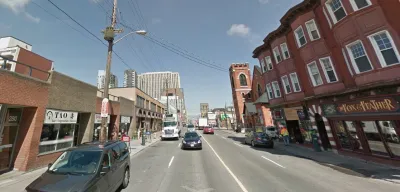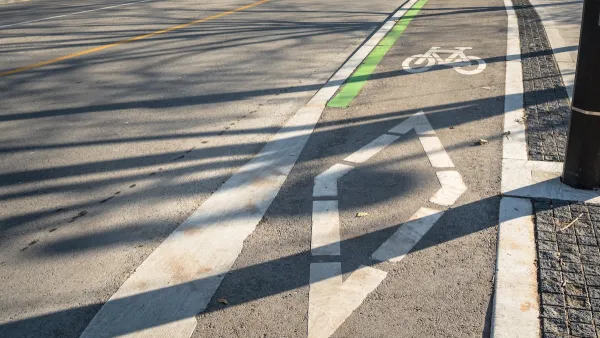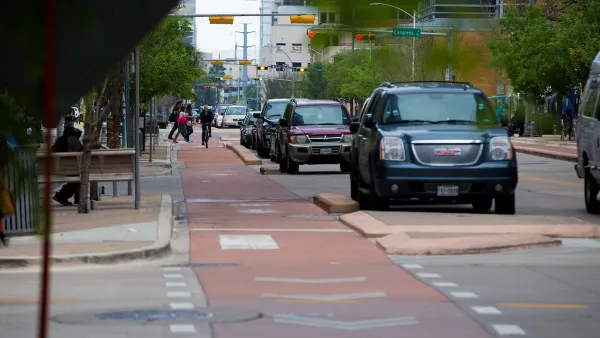The city of Ottawa's plan to make improvements to Elgin Street has elicited conflicting opinions between businesses, residents, and commuters on what should be prioritized in order to make a better street.

With large portions being no wider than four lanes (with two of those lanes being street parking) and no room to grow, Elgin Street in downtown Ottawa, Canada finds itself in a battle between the businesses who want to keep their street parking and everyone else who want a bike and pedestrian friendly street. David Reevely of the Ottawa Citizenreports that the consensus opinion of locals is a desire to see wider sidewalks, bike lanes, more street trees, and patios. Businesses on the street disagree, putting their number one priority as the street parking that lines both sides of the narrow roadway.
Reevely writes that a 1989 study by consultants of the area's parking situation found that there was an abundance of daytime parking, but evening parking, when patrons were going to restaurants and businesses, was in short supply.
The consultants kicked around the ideas of banning new restaurants and bars on Elgin because they bring people in at night beyond the area’s parking capacity, fiddling with a handful of no-parking zones to add some spots here and there, and — the big one — tearing up Jack Purcell Park for a new 150-space city garage.
The garage was probably best, the consultants concluded, even though it would cost millions and need subsidies because people will pay for parking when they’re going to work but resist it when they’re going out to enjoy themselves. I’ll say that again. People want parking but not enough to pay what it costs to provide, even when it’s scarce.
The city of Ottawa's project web site notes the functional design study for the street, following the review and evaluation of all options, is scheduled to conclude early next year.
FULL STORY: The battle for Elgin Street is heating up

National Parks Layoffs Will Cause Communities to Lose Billions
Thousands of essential park workers were laid off this week, just before the busy spring break season.

Retro-silient?: America’s First “Eco-burb,” The Woodlands Turns 50
A master-planned community north of Houston offers lessons on green infrastructure and resilient design, but falls short of its founder’s lofty affordability and walkability goals.

Delivering for America Plan Will Downgrade Mail Service in at Least 49.5 Percent of Zip Codes
Republican and Democrat lawmakers criticize the plan for its disproportionate negative impact on rural communities.

Test News Post 1
This is a summary

Test News Headline 46
Test for the image on the front page.

Balancing Bombs and Butterflies: How the National Guard Protects a Rare Species
The National Guard at Fort Indiantown Gap uses GIS technology and land management strategies to balance military training with conservation efforts, ensuring the survival of the rare eastern regal fritillary butterfly.
Urban Design for Planners 1: Software Tools
This six-course series explores essential urban design concepts using open source software and equips planners with the tools they need to participate fully in the urban design process.
Planning for Universal Design
Learn the tools for implementing Universal Design in planning regulations.
EMC Planning Group, Inc.
Planetizen
Planetizen
Mpact (formerly Rail~Volution)
Great Falls Development Authority, Inc.
HUDs Office of Policy Development and Research
NYU Wagner Graduate School of Public Service





























